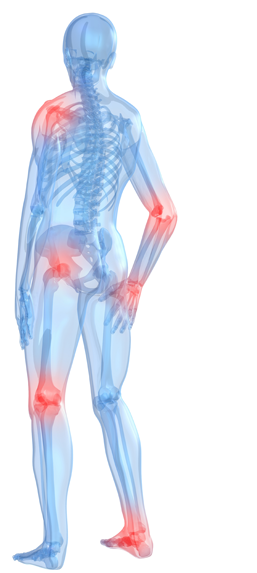Supporting Research
Angerer P, von Schacky C. n-3 polyunsaturated fatty acids and the cardiovascular system. Curr Opin Lipidol. 2000;11(1):57-63.
Balk EM, Lichtenstein AH, Chung M et al. Effects of omega-3 fatty acids on serum markers of cardiovascular disease risk: A systematic review. Atherosclerosis. 2006 Nov;189(1):19-30.
Bassett CM, Rodriguez-Leyva D, Pierce GN. Experimental and clinical research findings on the cardiovascular benefits of consuming flaxseed. Appl Physiol Nutr Metab. 2009;34(5):965-74.
Belluzzi A, Boschi S, Brignola C, Munarini A, Cariani C, Miglio F. Polyunsaturated fatty acids and inflammatory bowel disease. Am J Clin Nutr. 2000;71(suppl):339S-342S.
Boelsma E, Hendriks HF. Roza L. Nutritional skin care: health effects of micronutrients and fatty acids. Am J Clin Nutr. 2001;73(5):853-864.
Bradbury J, Myers SP, Oliver C et al. An adaptogenic role for omega-3 fatty acids in stress; a randomised placebo controlled double blind intervention study (pilot)ISRCTN22569553. Nutr J. 2004 Nov 28;3:20.
Dichi I, Frenhane P, Dichi JB, Correa CR, Angeleli AY, Bicudo MH, et al. Comparison of omega-3 fatty acids and sulfasalazine in ulcerative colitis. Nutrition. 2000;16:87-90.
Freeman VL, Meydani M, Yong S, Pyle J, Flanigan RC, Waters WB, Wojcik EM. Prostatic levels of fatty acids and the histopathology of localized prostate cancer. J Urol. 2000;164(6):2168-2172.
Geerling BJ, Badart-Smook A, van Deursen C, et al. Nutritional supplementation with N-3 fatty acids and antioxidants in patients with Crohn's disease in remission: effects on antioxidant status and fatty acid profile. Inflamm Bowel Dis. 2000;6(2):77-84.
Goldberg RJ, Katz J. A meta-analysis of the analgesic effects of omega-3 polyunsaturated fatty acid supplementation for inflammatory joint pain. Pain. 2007 Feb 28; [Epub ahead of print].
Kremer JM. N-3 fatty acid supplements in rheumatoid arthritis. Am J Clin Nutr. 2000;(suppl 1):349S-351S.
Pruthi S, Thompson SL, Novotny PJ, Barton DL, Kottschade LA, Tan AD, Sloan JA, Loprinzi CL. Pilot evaluation of flaxseed for the management of hot flashes. J Soc Integr Oncol. 2007 Summer;5(3):106-12.
Seddon JM, Rosner B, Sperduto RD, Yannuzzi L, Haller JA, Blair NP, Willett W. Dietary fat and risk for advanced age-related macular degeneration. Arch Opthalmol. 2001;119(8):1191-1199.
Weinstock-Guttman B, Baier M, Park Y et al. Low fat dietary intervention with omega-3 fatty acid supplementation in multiple sclerosis patients. Prostaglandins Leukot Essent Fatty Acids. 2005;73:397-404.
Flaxseed oil | University of Maryland Medical Center http://umm.edu/health/medical/altmed/supplement/flaxseed-oil#ixzz3dYQtzXBG
Disclaimer
As with any nutritional supplement, please consult your physician before taking. Nothing contained in this site is or should be considered or used as a substitute for professional medical or mental health advice, diagnosis, or treatment. Never disregard medical advice from your doctor or other qualified health care provider or delay seeking it because of something you have read on the Internet. We urge you to seek the advice of your physician or other qualified health professional with any questions you may have regarding a medical or mental health condition.
Please call our friendly customer support at 1-866-271-7595 M-F during normal business hours EST if you have any questions!






